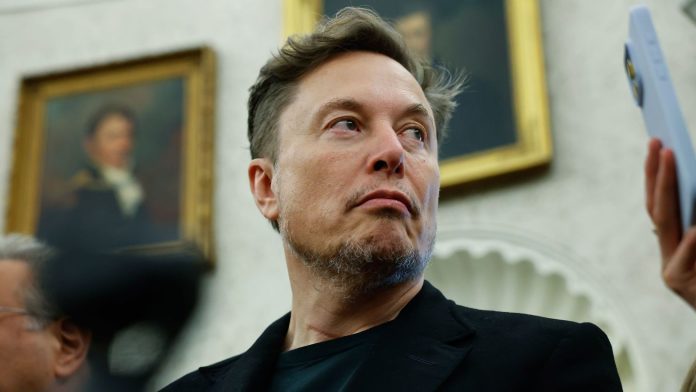American entrepreneur Elon Musk has announced that he is stepping down as head of the Department of Government Efficiency (DOGE) to cut costs, US media reported on Thursday.
“As my scheduled time as a Special Government Employee comes to an end, I would like to thank President @realDonaldTrump for the opportunity to reduce wasteful spending,” Musk wrote on social media platform X. “The DOGE mission will only strengthen over time as it becomes a way of life throughout the government,” he added.
Under US law, Musk’s temporary civil servant status, which he received on January 20, was set to end on May 30. However, the exact date could vary depending on the number of days actually worked.
Meanwhile, a White House spokesperson told CNN that Musk would begin the process of resigning on Thursday evening.
“Big or beautiful” spending bill
The entrepreneur announced his decision the day after criticising Trump’s flagship budget bill, saying it undermined the efforts of the DOGE to cut spending. In an interview with CBS, Musk said he was disappointed by the bill’s “large spending increases that increase the US budget deficit and undermine the work that the DOGE team is doing.”
Last week, the US House of Representatives approved Trump’s proposed budget by 215 votes to 214. The bill provides for tax cuts and increased spending, including on defence. It is now being considered by the Senate. Trump calls the bill “big and beautiful” and “probably the most significant” in US history. However, he had to persuade several Republicans in Congress to support the budget, the Financial Times reported.
Musk’s decision to leave the Trump administration is not only related to his criticism of the bill. Recently, he has increasingly expressed his intention to reduce his political activity and focus on running his businesses.
Tesla’s European sales
Last week, he announced that he would continue to head Tesla and plans to tighten control over its operations. Musk’s statements were met with a positive reaction from investors, but in a broader context, his political activities have provoked mixed reactions.The mass layoffs initiated by DOGE sparked protests not only in the US but also in other countries where Tesla has interests. Opponents criticised the businessman’s involvement in politics, pointing to a conflict of interest between his role in government and his business activities.
Pressure mounted among Tesla investors for Musk to focus on corporate tasks. To ease tensions, he announced in April that he would reduce his presence in the White House to one or two days a week. White House Chief of Staff Susan Wiles confirmed that the entrepreneur had effectively switched to remote working.
Musk’s involvement in politics has significantly affected Tesla’s share price. After Trump’s election victory, the market assessed his potential influence as positive: investors poured over $700 billion into the carmaker’s shares.
In December, Tesla shares reached an all-time high of $488.54, and Musk’s personal fortune exceeded $400 billion. However, in the following months, Tesla shares fell by more than 50%. Despite this, Musk insisted on the stability of the business and rejected claims that his political activity was damaging the Tesla brand. Amid growing pressure, the media reported on a possible change in Tesla’s leadership.
In early May, The Wall Street Journal wrote that the board of directors was discussing options for replacing Musk as CEO.
Closure of USAID
One of the most controversial moves by DOGE under Elon Musk’s leadership was the abolition of the United States Agency for International Development (USAID), one of the key instruments of American foreign policy since its founding in 1961.
DOGE stated that USAID had “lost its relevance in a changing global architecture” and that a significant portion of its programmes duplicated the functions of other public and private institutions. The Trump administration emphasised that funds previously allocated to international aid would be better invested in domestic programmes.
